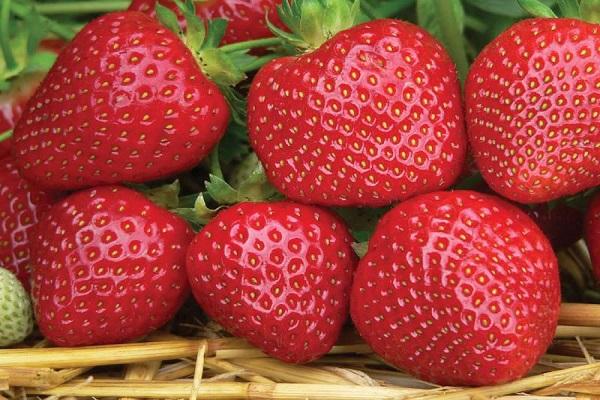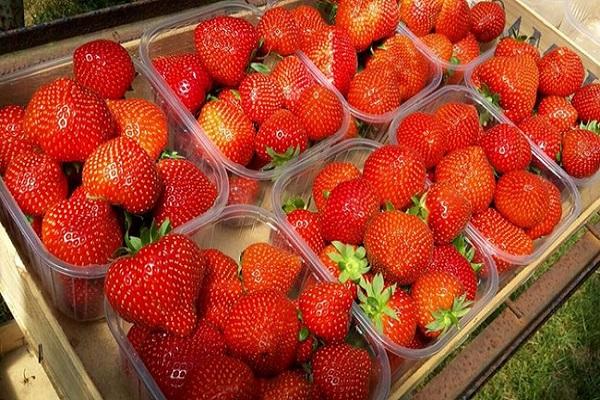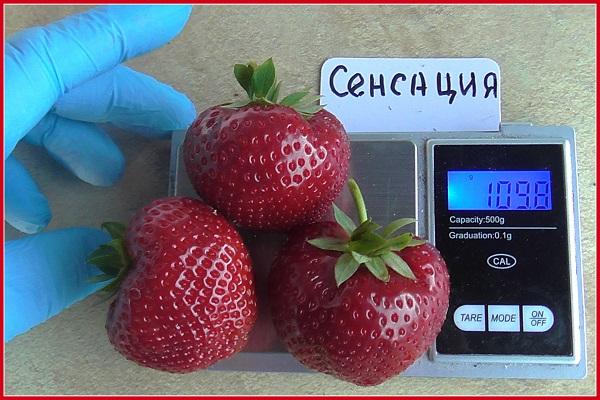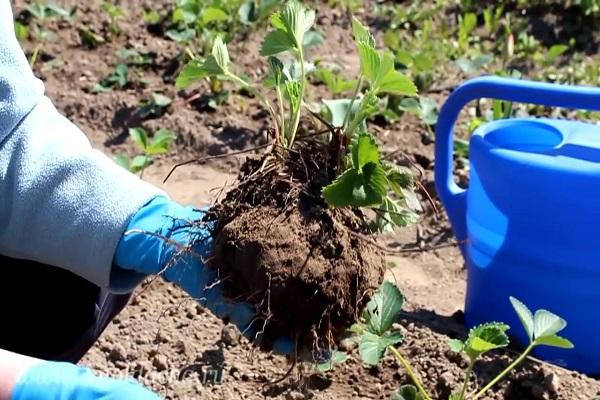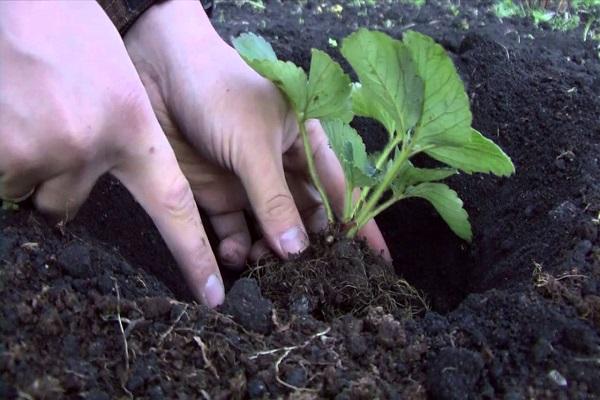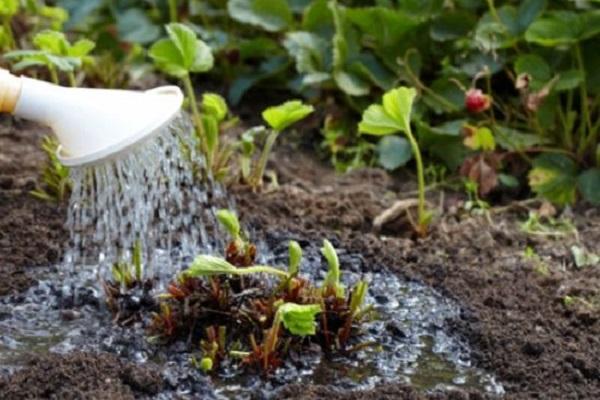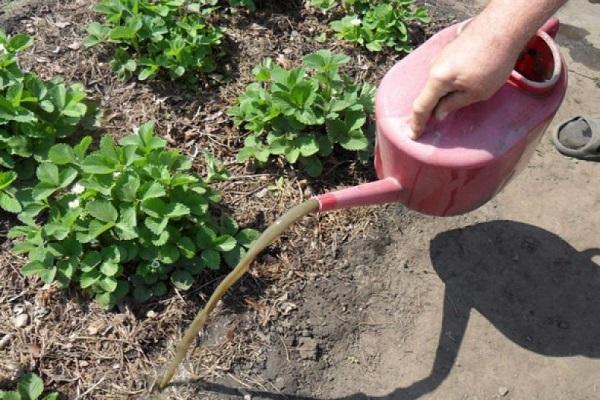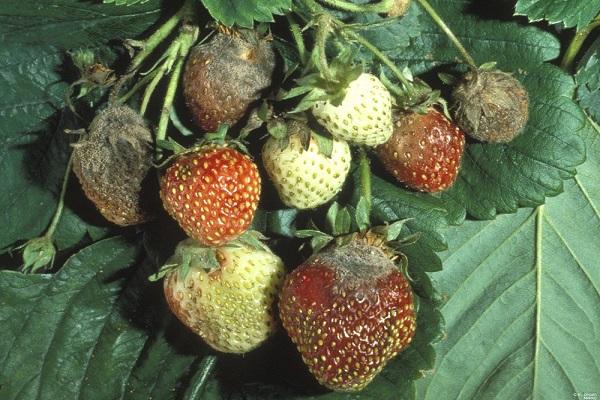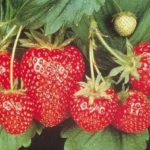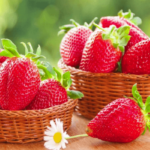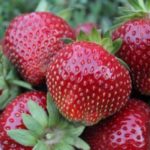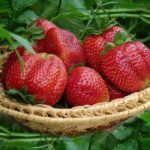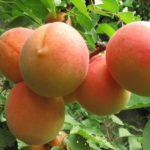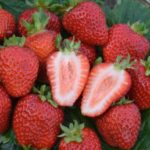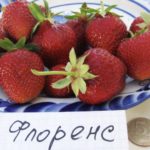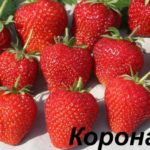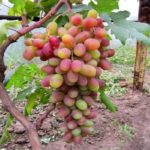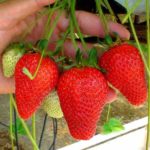Mid-season Dutch strawberry varieties are popular among gardeners. Recently, the group was replenished with another strawberry variety - Sensation. Strawberries are characterized by a long fruiting period. Many gardeners have managed to appreciate the culture.
- Main characteristics
- Ripening dates and fruiting characteristics
- Commercial and consumer qualities of berries
- Sustainability and agronomic recommendations
- Advantages and disadvantages of strawberries Sensation
- Features of growing the variety
- Dates and location selection
- Planting material
- Planting process
- Subtleties of plant care
- Watering and fertilizing
- Wintering
- Protection from diseases and pests
- Strawberry propagation methods
- Collection and storage of the variety
Main characteristics
Sensation is one of the ideal varieties for growing. During selection, the crop received the best characteristics, among which taste takes pride of place.
Ripening dates and fruiting characteristics
Sensation is in the category of crops with an average fruiting period. The plant begins to please the owner with a harvest in the middle of the strawberry season. Growing in open ground, fruits appear on bushes in the first half of June. The fruiting period of strawberries is extended, during which you can notice ripe berries, green ones, flowers and the formation of new ovaries on the bush.
The formation of flower stalks occurs in large numbers. Very long and located slightly below the leaves, which protect them from environmental factors. The heaviness of the berries pulls them toward the ground, causing their location to change.
The flowers contain a large amount of pollen. Sensation is capable of self-pollination. This allows you to obtain stable productivity of new fruits that have an excellent presentation.
Commercial and consumer qualities of berries
The collected strawberry fruits are characterized by a uniform color. They have a round-conical shape. The berries remain medium in size until the very end of fruiting and practically do not become smaller.
Ripe berries are covered with bright red skin. On one bush, fruits with a pink, red or orange tint ripen. On the shiny surface of the strawberry, small seeds are visible, which are not too deep into the pulp. Inside, the flesh is light, juicy, dense and soft at the same time.
In the first year of fruiting, the berries have internal voids. When there is heavy rainfall, they remain sweet and do not become watery. The variety earned high marks after tasting. The taste of strawberries has strong strawberry notes..
Sustainability and agronomic recommendations
The breeders who developed the variety indicate good resistance to droughts and prolonged winter cold. It can be grown without problems in heavy soils and does not require special care. When growing strawberries, standard agrotechnical practices are used. Mandatory inclusion of fertilizers with a high magnesium content.
Advantages and disadvantages of strawberries Sensation
The advantages include:
- ease of assembly;
- average maturity;
- fleshy pulp;
- pleasant strawberry aroma;
- easy care;
- a stable immune system to various diseases.
There are no reviews of any shortcomings yet, since the variety was recently bred. Obtaining an objective assessment is possible after testing the crop in different weather conditions.
Features of growing the variety
Knowing what contributes to the growth of strawberries, you can get healthy bushes that will bear fruit every year.
Dates and location selection
Sensation loves light, so it is planted in an area in direct sunlight. Easily tolerates partial shade and grows adjacent to fruit trees. Most of the day the bushes are in direct sunlight, and the rest of the time in partial shade.
Planting material
Young sprouts intended for planting have a closed root system. The material is purchased in specialized stores or farms engaged in breeding various crops. Strawberry sprouts must be strong and healthy for planting.
Planting process
If you maintain a distance of 40 cm between the bushes, per 1 sq. m will make 4 crops. This approach allows you to obtain unthickened plantings. This allows the seedlings to receive enough light and good ventilation.
Before planting strawberries, the soil is carefully prepared. The place is dug up, weeds and roots left from other crops are removed.
The area is dug up to a depth of at least 40 cm.
After this, fertilizer is applied to the soil. Strawberries prefer peat, compost or manure. In the latter case, the manure must be rotted. A complex fertilizer without chlorine is also welcome.
Subtleties of plant care
Watering and preparing the bushes for winter is of great importance.
Watering and fertilizing
Features of soil saturation with moisture:
- Irrigation work is carried out in the morning.
- The soil is soaked to a depth of 25 cm.
- For 1 sq. m during the flowering of Sensation it takes from 20 to 25 liters.
- During periods of prolonged precipitation, the bushes are covered with a light film.
When applying fertilizers, the following standards are observed:
- Mandatory presence of magnesium. With the help of this element, chlorophyll is formed. The culture needs it most at the moment of flowering. Magnesium is involved in the formation of the root system and leaf development.
- Potassium. Unlike magnesium, it is important not to overdo it with potassium.
- Magnesium sulfate. Acts as a top dressing.
With a deficiency of nutrients, the vital activity system of strawberries suffers. First of all, this affects the appearance. The stems become weak, the bushes slow down in growth, the leaves turn yellow, dry out and wither. Productivity decreases and fruit quality deteriorates.
Wintering
Agrofibre is used to successfully withstand winter cold. Its structure allows the plant to breathe, avoiding stagnation of moisture. At the same time, the thin material does not allow the cold to reach the bushes.
Protection from diseases and pests
The most common diseases of strawberries are spotting and rot. Moreover, perforated spotting, brown, red and white spotting, as well as coccomycosis, are found. Sensation is rarely affected by these diseases, as it has a low susceptibility to them. If the region where the variety is grown is characterized by frequent precipitation and a humid climate, preventive treatments against late blight are carried out.
Strawberry propagation methods
New bushes are obtained by transplanting daughter rosettes. Varieties that have spent more than 1 year on the site are ready for propagation. About 35-40 cm of free distance is left between the seedlings. In this way, the strawberries are guaranteed good ventilation, uniform illumination and uniform distribution of nutrients.
For successful propagation of Sensation, uterine bushes are selected. On each one, all antennae are removed. The crop is monitored throughout the season. If the plantings were not sick, survived all climatic changes and at the same time gave a good harvest, then they should become mother bushes.
Collection and storage of the variety
When picking berries from bushes, be careful not to damage their integrity. The collected fruits are stored in the refrigerator at a temperature of +3-+5 degrees for a week. The presentation is completely preserved. Used for making desserts and canned for the winter. It can be consumed fresh, but can also be frozen for the winter.

